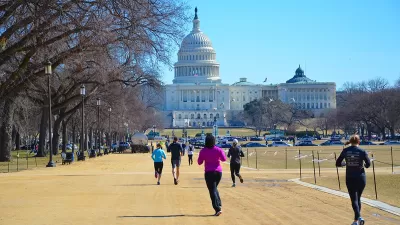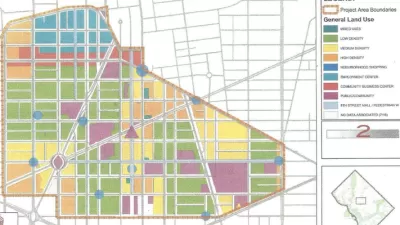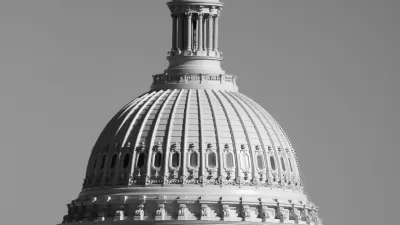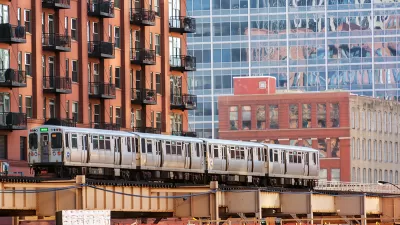A neutral capital "district" may have sounded like a fine idea in the early 1800s. Today, Washington, D.C.—the burgeoning city, not the political fabrication—is crippled by the whims of Congress and a host of anti-urban policies.

Washington, D.C.'s license plates have long complained of "taxation without representation." That pithy protest belies a complex and increasingly dire situation for the nation's capital city. On everything from gun control and marijuana decriminalization to building heights and transportation plans, The District must almost always defer to Congress. Unfortunately, Congress hates D.C. just about as much as D.C. hates Congress. Lawmakers from rural areas and others who treat D.C. as an office and not a city have often acted against its best interests.
Activists in D.C. have long called for statehood or, at least, substantial representation and autonomy. But Congress has not budged, because, "Unlike the enfranchisement of women and African-Americans last century, D.C. statehood doesn’t bring new voting constituents to any current elected official. As a result, members of Congress feel little political pressure to take action; in fact, they stand to see their power diluted by the addition of a new delegation."
While the city has grown, and gentrified, tremendously in recent years, this growth is yet another reason why the city needs serious governance and planning. Writing for Next City, Aaron Wiener makes an impassioned case for the unshackling of The District.
"It has become, at turns, a testing ground and a fiefdom for federal officials from faraway rural areas whose policy philosophies have entirely different implications at home than they do in the capital city. Time and again, the city’s ability to address its uniquely urban challenges, to grow and prosper, to fulfill the wishes of its city-dwelling residents, has been squashed by federal control."
FULL STORY: Why Urbanists Everywhere Should Be Fighting for D.C. Statehood

Planetizen Federal Action Tracker
A weekly monitor of how Trump’s orders and actions are impacting planners and planning in America.

Map: Where Senate Republicans Want to Sell Your Public Lands
For public land advocates, the Senate Republicans’ proposal to sell millions of acres of public land in the West is “the biggest fight of their careers.”

Restaurant Patios Were a Pandemic Win — Why Were They so Hard to Keep?
Social distancing requirements and changes in travel patterns prompted cities to pilot new uses for street and sidewalk space. Then it got complicated.

Platform Pilsner: Vancouver Transit Agency Releases... a Beer?
TransLink will receive a portion of every sale of the four-pack.

Toronto Weighs Cheaper Transit, Parking Hikes for Major Events
Special event rates would take effect during large festivals, sports games and concerts to ‘discourage driving, manage congestion and free up space for transit.”

Berlin to Consider Car-Free Zone Larger Than Manhattan
The area bound by the 22-mile Ringbahn would still allow 12 uses of a private automobile per year per person, and several other exemptions.
Urban Design for Planners 1: Software Tools
This six-course series explores essential urban design concepts using open source software and equips planners with the tools they need to participate fully in the urban design process.
Planning for Universal Design
Learn the tools for implementing Universal Design in planning regulations.
Heyer Gruel & Associates PA
JM Goldson LLC
Custer County Colorado
City of Camden Redevelopment Agency
City of Astoria
Transportation Research & Education Center (TREC) at Portland State University
Camden Redevelopment Agency
City of Claremont
Municipality of Princeton (NJ)





























